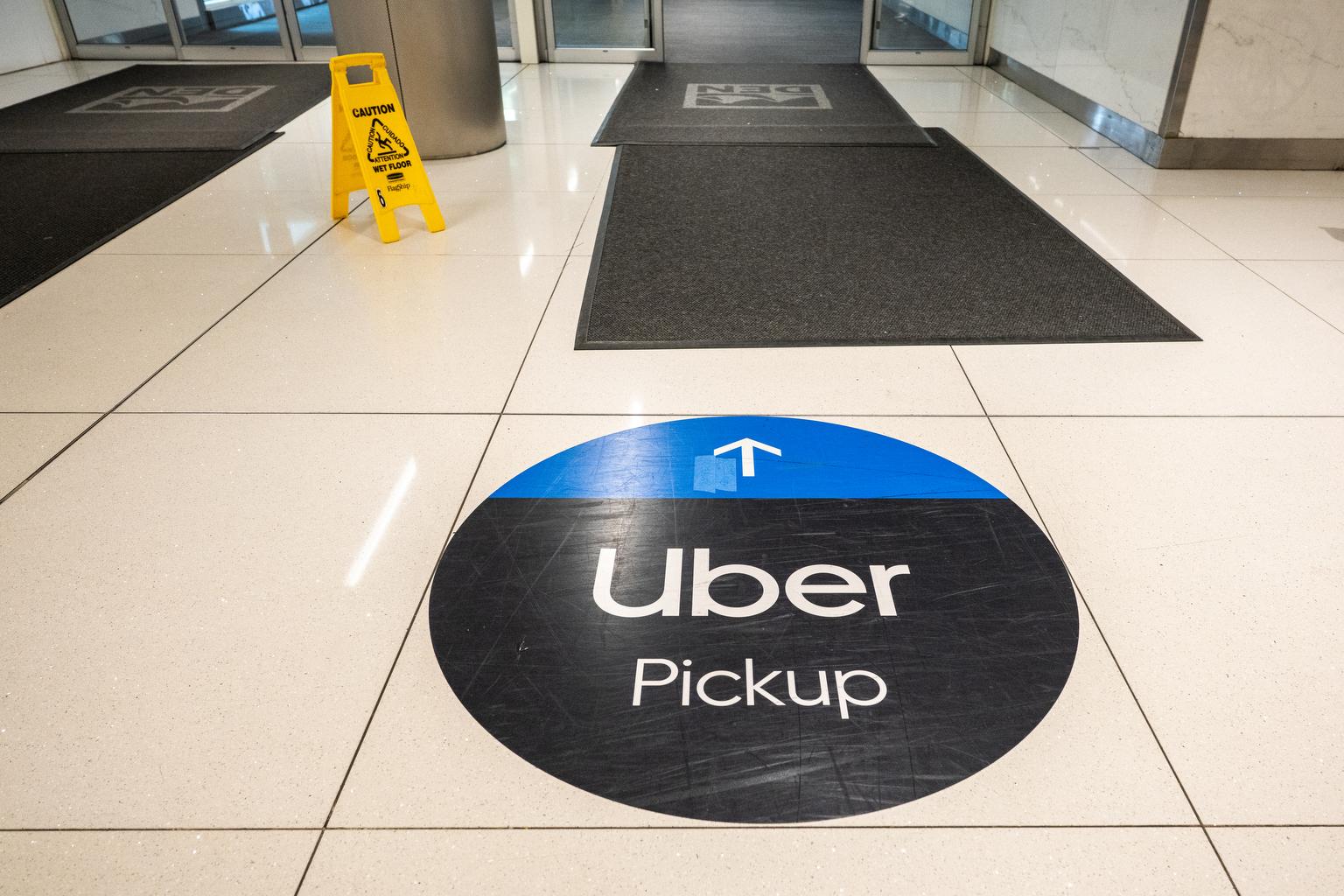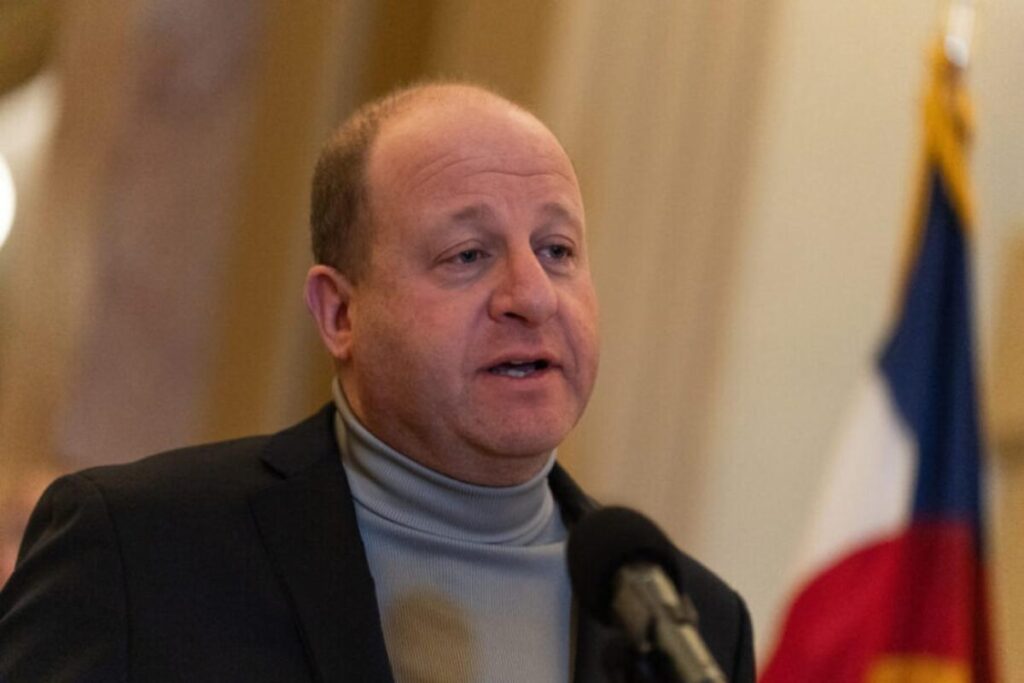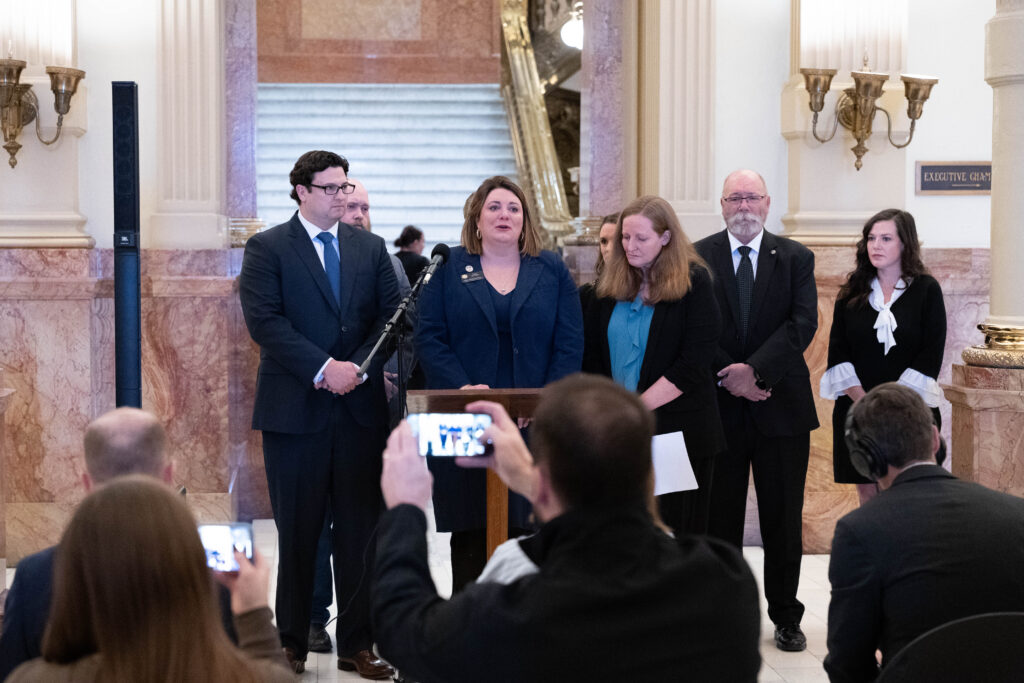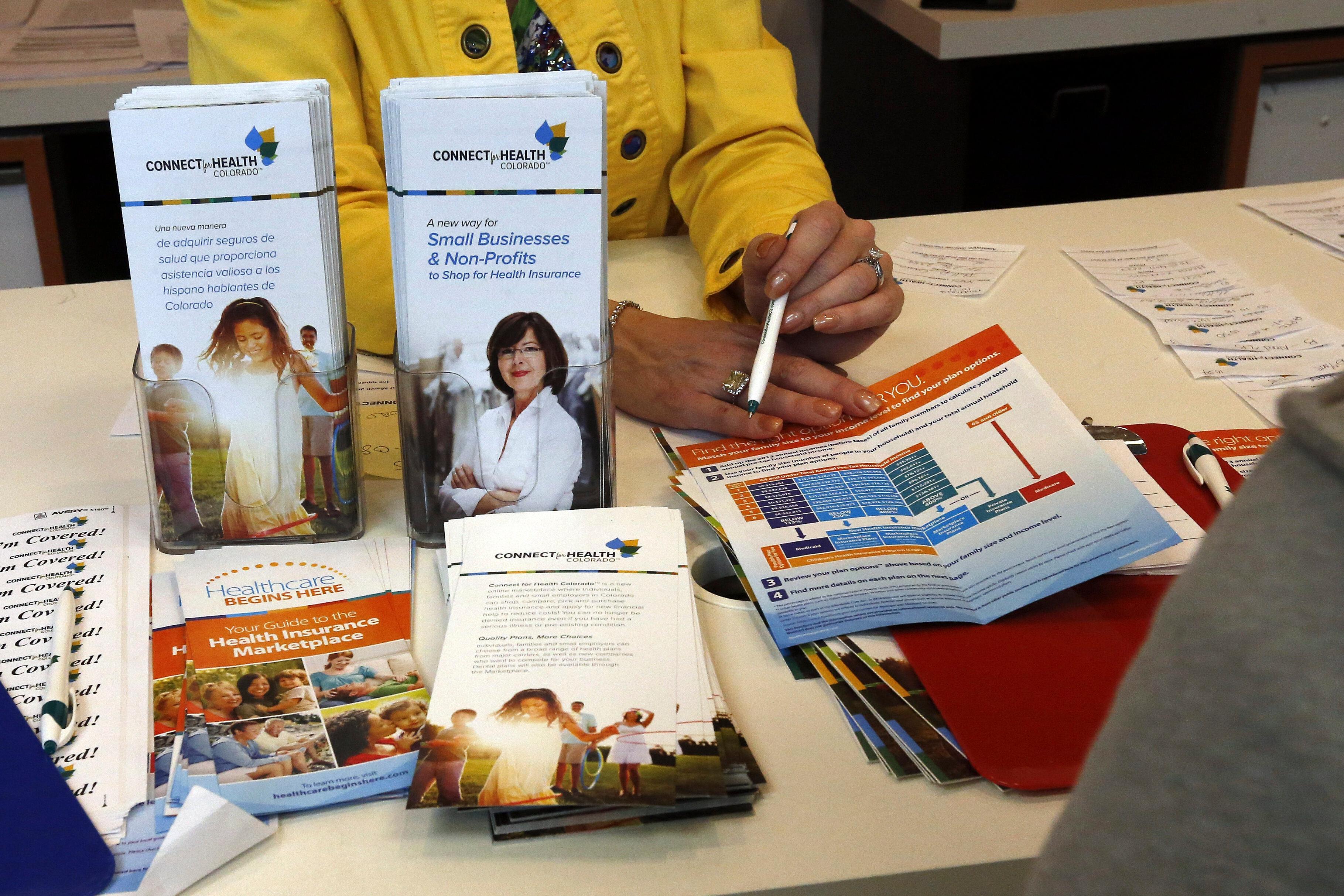
Gov. Jared Polis on Friday vetoed a rideshare safety measure that was prompted by the alleged sexual assault of a state lawmaker during a Lyft ride.
House Bill 1291 aimed to improve safety for rideshare passengers and drivers, including by adding background check requirements, banning drivers from offering passengers food and drink and giving drivers more leeway to record rides. But it faced significant pushback from the rideshare giants Uber and Lyft.
The companies said it would add costly and unworkable burdens and fail to make rideshare passengers and drivers safer and urged a veto. Uber threatened to stop operating in Colorado if the rideshare safety legislation became law.
Uber used its app to send messages to its hundreds of thousands of riders in Colorado urging them to oppose the measure.
The company’s threat to leave the state appeared to play into Polis’ decision.
“While I appreciate the sponsors’ intent to ensure the safety of riders and drivers, House Bill 1291 would impose unworkable regulations on (rideshare companies) and potentially jeopardize the continued operation in Colorado,” Polis wrote in a letter explaining his veto. “I want to make sure that Uber, Lyft, and others will be able to continue to operate in Colorado, but are far more accountable for the safety of riders and drivers.”
However, Polis wrote, House Bill 1291 went too far in its “unclear language on audio-video recording” and "inoperable timelines to produce new regulatory rules.”
One of the governor’s biggest concerns continued to be a requirement that rides be recorded if both the driver and passenger agreed to it.
“Drivers and riders are entitled to privacy, and while I appreciate the movement on this issue, the net effect of the remaining language in the bill still strongly suggests making recording mandatory,” Polis wrote, “which will put this law in direct conflict with other state privacy laws and make compliance a challenge. Moreover, the relevant data retention pieces remain challenging, without ensuring proper security protocols, and creates operational difficulties.”

Polis directed his administration to find other ways to enhance rideshare safety as part of his veto and challenged rideshare companies to do more to protect riders and drivers. He said he was directing the Department of Regulatory Agencies to potentially expand the Public Utilities Commission’s rideshare regulatory authority to focus on passenger safety and transparency, and conduct more audits.
Polis said he wanted the PUC to take a holistic approach to increase safety, which may require target legislation next session.
“The status quo isn’t sufficient,” the governor wrote.
Democratic state Rep. Jenny Willford of Northglenn spearheaded the rideshare safety effort this year after going public about being sexually assaulted by a Lyft driver in February 2024. Prosecutors this month charged the man accused in the assault, Mukhammadali Mukadyrov, with one felony count of unlawful sexual contact. Willford is also suing Lyft.

The rideshare safety measure passed the legislature with broad bipartisan support. On Friday, its four Democratic sponsors called Polis’ veto a disappointing move that sides with the profits of powerful tech corporations over the safety and dignity of Colorado sexual assault survivors. They dismissed many of his concerns as “red herrings and industry talking points,” and they faulted Polis for not coming to them earlier to negotiate a compromise.
“The veto is not just a political decision — it’s a message. Survivors, advocates, and lawmakers across the state worked tirelessly to bring transparency, accountability, and justice to an industry that has operated without meaningful guardrails for far too long. Those efforts were dismissed in one stroke, with an empty promise of future regulatory review. Coloradans deserve safety now,” said the letter from Willford, Rep. Meg Froelich and Sens. Jessie Danielson and Faith Winter.
They described it as a David and Goliath battle and said they will be back, “fighting until every rider and driver is safe.”
Polis’ veto wasn’t a surprise. He had publicly expressed concerns about the bill, including potential conflicts with federal and other state laws and his administration testified against it in committee.
Earlier this month, a group of sexual assault survivors sent Polis a letter advocating for him to sign the bill into law.
They noted that it had gone through significant revisions and compromises, and said the claim that the bill was antibusiness was a misconception.
“What we are asking for is simple: the industry that markets itself as a safe choice for a ride home should have to live up to its promises and enact basic safety measures with accountability when those measures fail,” states a letter from 10 women who were assaulted by John Pastor-Mendoza. In March, the former rideshare driver was convicted of 30 felony counts of kidnapping and sexual assault.
The survivors said their lives have been irrevocably altered and they stand firmly behind the original bill.
“We are not seeking revenge, nor are we trying to dismantle a multi-billion-dollar industry. What we want is simple: to ensure that what happened to us doesn't happen to someone else.”
House Bill 1291 was one of two bills Polis vetoed Friday, bringing his total number of vetoes this year to seven.
The other bill Polis vetoed Friday was House Bill 1220, which would have required practicing dietitians and nutritionists to become licensed by Sept. 1, 2026 and set the requirements for licensure.
“I disagree with the need for regulation of this profession,” Polis wrote in a letter explaining his veto.
The rideshare bill is the second tech-regulation measure passed by the legislature this year that the governor has vetoed. The first had to do with social media sites, and the legislature nearly overrode the veto.
The governor is also expected to veto a tech bill that would limit the use of algorithmic rent-setting software.
His record number of vetoes in a single year is 10. That happened in 2023.
The governor has until June 6 to sign or veto bills passed during the legislative session this year. He can also let bills become law without his signature.

Colorado Capitol Alliance
This story was produced by the Capitol News Alliance, a collaboration between KUNC News, Colorado Public Radio, Rocky Mountain PBS, and The Colorado Sun, and shared with Rocky Mountain Community Radio and other news organizations across the state. Funding for the Alliance is provided in part by the Corporation for Public Broadcasting.
Funding for public media is at stake. Stand up and support what you value today.








